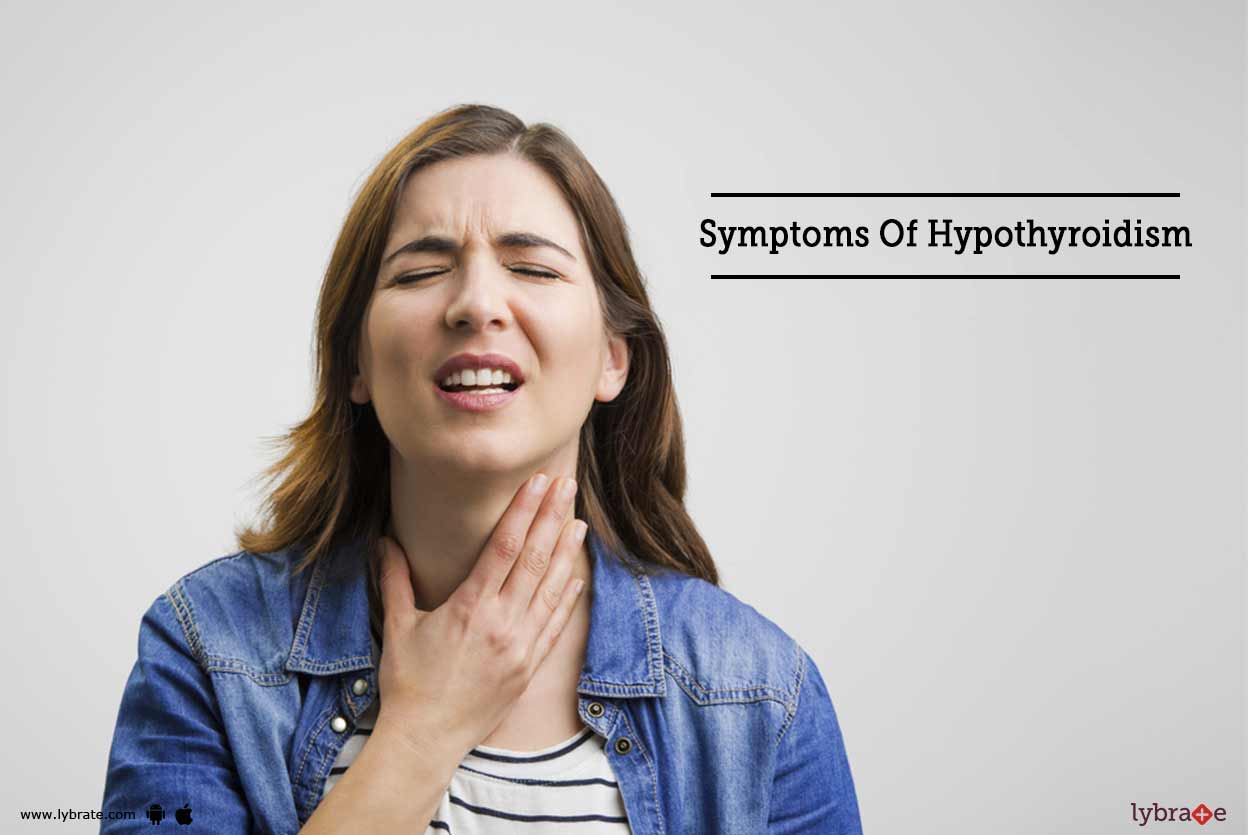Symptoms Of Hypothyroidism
Last Updated: Apr 09, 2020
Weight gain is considered as most common and noticeable symptom of hypothyroidism as it correlates with the slower metabolism of bod as compared to normal metabolisms. Due to reduced frequency of metabolism, body won't convert consumed food into required energy and it gets stored in the form of fats in the body tissues. Primarily, person gains mild to moderate weight and it is found to be difficult to loss it despite of exercise and diet. The number of calories is remains constant and the utilization of calories are decreased causing increase in weight.
Feeling Cold
As thyroid hormones are important hormones for regulating body functions as well as energy levels along with metabolism, its disturbed levels are dropping body metabolism and temperature. The basal metabolic rates are decreased that give feeling of cold or low tolerance against the cold. Such symptoms of coldness are also occurring in summer months or in a warm room. Cold is not only felt in palms and feet but many people may felt it in whole body that craves for getting warm by any means.
Severe Weakness and Aches in Muscles and Joints
Aches, pains, stiffness, swelling of the joints, tenderness, and weakness are signs through which muscles and joints of person are affected by hyperthyroidism. This condition arises because metabolism is reduced and catabolism is started that breaks down the body tissues such as muscles for energy and decreases its strength. A healthy person also feels weakness in muscles and joints but when it compared to a patient suffering from hypothyroidism, it is more weak than usual. People with rheumatoid arthritis and thyroid problems are having many similar symptoms but they need to be separated for proper treatment.
Hair Loss
Thyroid hormones are not only reason behind hair loss like condition but they are also contributing to it as they regulate growth and health of hair follicles. Due to less amount or absence of thyroid hormones, regeneration of hair follicles is stopped and unexpected changes in the rate or patterns of hair loss can be seen. Researchers had proven that people suffering from hypothyroidism are more susceptible to experience condition like alopecia, coarsening of the hair, etc. When it comes to understand symptoms with respect to hairs, signs like hair loss from scalp, eyebrows, legs and other body parts need to be observed.
Itchy and Dry Skin
Signs like dry or coarse skin, paleness, thin and scaly skin are associated with the effects of underactive thyroid hormones over the skin. The growth signals triggered by thyroid hormones are reduced and skin may take more time to regrow if the normal cycle of skin is disturbed. This changes occurring during such disorder is not related to any hay fever or allergies or other skin related diseases and once diagnosed, it should be treated completely because it may leads to swelling and redness of skin, known as myxedema like autoimmune disorder.
Feeling Down or Depressed
The brain of human required a proper amount of thyroid hormone to work correctly and low levels of such hormones decreases the overall energy and health of the brain. This can be expressed by symptoms of anxiety, depression, apathy, impaired memory function, low moods, and slower thinking and attention conditions. Insufficient amount of thyroid hormones are also altering the structure of the brains and its functioning which requires treatment of thyroid hormone replacement therapy and can be reversed once patient begins the treatment.
Trouble in Concentrating or Remembering
Thyroid hormones are essential hormones for the normal functioning of many different parts of body and its disturbed levels are resulting into defects in many functions of body systems. Difficulties or troubles in concentration on one thing or in regular activities are reported by many patient of hypothyroidism. Person’s thinking and remembering abilities gets reduced and complain of mental fogginess is examined in low-thyroid individuals. This type of conditions occurring due to hypothyroidism can be reversed once the treatment of balancing the hormone levels is started.
Constipation
The movement of gut is disturbed when there are underactive thyroid hormones as they are breaking the function of the stomach, intestine and colon. Generally, normal bowel movement is three bowel movements in a day to three times in a week. If a person is having bowel movement less than three times in a week, it is diagnosed as constipation. There are many studies performed from which data proves that hypothyroidism patients are experiencing problems like hard stools, difficulty in passing stools, or feeling of inappropriate emptying of rectum. Presence of constipation along with other symptoms of hypothyroidism seeks medical advice.
Heavy or Irregular Periods
Thyroid hormones are the hormones that also affect the other hormones of the body, especially the hormones like estrogen and sex hormones. The effects of thyroid hormones include impairing the detoxification of estrogen and reducing the amount of sex hormone and binding globulin. Such effects are disturbing menstrual cycles of women and causing irregular and/or heavy periods. Women with hypothyroidism are experiencing such symptoms and these hormones are also directly influencing the ovaries and uterus that demand gynecologist consultation.
References
- Canaris GJ, Steiner JF, Ridgway EC. Do traditional symptoms of hypothyroidism correlate with biochemical disease?. Journal of general internal medicine. 1997 Sep;12(9):544-50. [Cited 06 April 2020]. Available from:
- Smith DW, Klein AM, Henderson JR, Myrianthopoulos NC. Congenital hypothyroidism—signs and symptoms in the newborn period. The Journal of pediatrics. 1975 Dec 1;87(6):958-62. [Cited 06 April 2020]. Available from:
- Pollock MA, Sturrock A, Marshall K, Davidson KM, Kelly CJ, McMahon AD, McLaren EH. Thyroxine treatment in patients with symptoms of hypothyroidism but thyroid function tests within the reference range: randomised double blind placebo controlled crossover trial. Bmj. 2001 Oct 20;323(7318):891-5. [Cited 06 April 2020]. Available from:
Table of content
Ask a free question
Get FREE multiple opinions from Doctors



